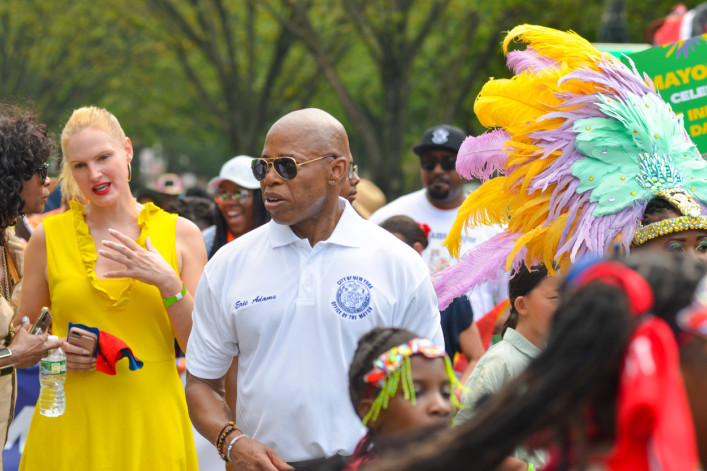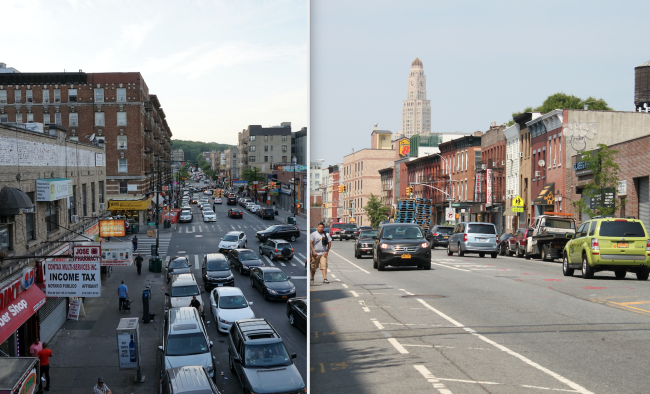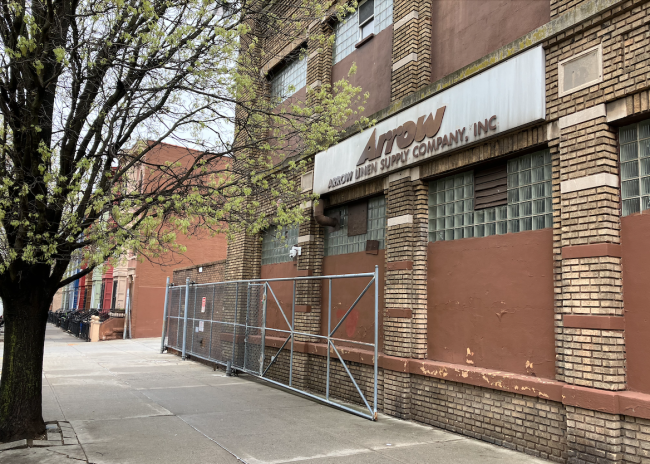City of Maybe: Does Mayor Adams’s indictment imperil his ambitious housing plan?
- Adams’s City of Yes plan to develop 100,000 homes heads to the City Council after key vote
- But critics say the mayor is now ‘politically weak’ and has ‘little influence over the Council’

Mayor Eric Adams during last year's annual West Indian Day parade in Brooklyn. He was indicted on the same day that his centerpiece housing proposal passed a key vote.
iStock
Mayor Eric Adams’ growing legal troubles caught up to him just hours after his ambitious housing proposal cleared a key vote by the City Planning Commission.
The mayor was indicted on federal criminal charges on Wednesday evening. Despite a long list of departures from City Hall amid a widening federal probe, the move still felt shocking: Adams is the first sitting NYC mayor to be criminally charged. He faces five charges of bribery, fraud, and soliciting illegal foreign campaign donations including over $100,000 in luxury travel perks in exchange for political favors to help Turkey, according to the indictment that was unsealed Thursday.
On Friday morning, he turned himself in and pleaded not guilty in a Lower Manhattan courthouse. He said he had no plans to resign.
City of Yes clears the City Planning Commission
Only hours before his indictment, the Adams administration scored a win when City of Yes, the mayor’s major rezoning proposal to develop 100,000 new dwellings citywide, passed the City Planning Commission by a vote of 10 to 3. The vote was preceded by an environmental and public review process, with over 175 community board meetings, 10 public information sessions, and recommendations of approval from four borough presidents.
There were two other notable votes on development proposals: 962-972 Franklin Ave. in Crown Heights and the Arrow Linen spot rezoning in Windsor Terrace.
City of Yes calls for building more housing in every NYC neighborhood, and would eliminate parking requirements, create a density bonus for builders of affordable housing, legalize accessory dwelling units, encourage development near transit and above storefronts, make it easier for faith-based organizations to build housing on their campuses, and for offices to be converted to residential use.
“The fact that too many New Yorkers are struggling to find an affordable home has not changed with the events of this week, nor has our commitment to address it,” Dan Garodnick, director of the Department of City Planning and chair of the City Planning Commission, said in a statement to Brick. Garodnick was appointed by Adams and is a champion of the proposal, according to The New York Times.
“With City of Yes for Housing Opportunity, we are one step closer to taking a bite out of our dire housing shortage, and we look forward to the City Council’s review of this important proposal,” he said.
All eyes on the City Council
Next up will be convincing the 26 City Council members to approve the plan. Some appear on board already: On Thursday, the Yes to Housing coalition rallied in support of City of Yes and were joined by council members Lincoln Restler, Shahana Hanif, and Tiffany Caban, and Assembly Member Zohran Mamdani.
After City Planning formally submits the proposal to the City Council for consideration, council members have 50 days to hold a hearing and vote. If the Council votes to modify the proposal in committee, they will have another 15 days for the full body to vote.
Still, City of Yes is a sprawling, comprehensive plan with many parts; even City Planning commissioners who voted yes expressed reservations.
Commissioner Gail Benjamin voted in favor but said she was troubled by the parking elimination.
“In my many years in land use, most communities have wanted more parking, not less parking,” she said.
One of the no votes came from Commissioner Leah Goodridge, a tenant lawyer who was appointed by Public Advocate Jumaane Williams. She said she objected to framing NYC’s housing shortage as an issue of supply and demand and said that the plan creates opportunities for developers and private equity companies to bully owners into giving up their properties.
“Why are we giving away the city to private developers? What are we getting in return?” she asked during her testimony before casting her vote.
‘No position to lobby or twist arms’
Goodridge’s vote could hold a small clue to the future of the proposal, considering that the public advocate would become acting mayor if Adams resigns.
“I think City of Yes already faced a wide range of skepticism and pushback from various communities and council members on a range of fronts,” said Andrew Berman, executive director of Greenwich Village Society for Historic Preservation, an organization that has been critical of the proposal.
“The mayor is as politically weak now as any mayor can be and has very little pull with or influence over the council,” Berman said. The vote by Public Advocate Williams’ appointee “likely at least in part reflects the public advocate’s view of it.” (Williams’ office did not respond to a media query by publication time.)
The future is not clear but “it’s incontrovertible that the mayor is in no position to lobby or twist arms for this or any other legislative initiative right now, and I don’t think anyone expects City of Yes to be approved in its current form,” Berman added.
The legislative process will proceed but the indictment complicates matters.
“Logistically, City of Yes can definitely pass the council while the mayor is facing criminal charges, but it will certainly be more difficult without leadership from City Hall,” said Cea Weaver, coalition director for Housing Justice for All.
“However, the plan is past the City Planning Commission stage at this point, and Speaker Adrienne Adams has the opportunity to step up, put her mark on the plan by centering affordability more deeply, and bring it into reality,” Weaver said.
Council Member Robert Holden of Queens said the mayor’s criminal charges will make it harder to pass City of Yes.
“Given the cloud hanging over the mayor and the administration, any significant changes, especially those impacting our neighborhoods, should be halted. The unique circumstances make it difficult for the plan to gain adequate support,” he said.
A request for investigating City of Yes
On Friday afternoon, Holden requested a formal inquiry into City of Yes. In a letter addressed to Southern District of New York U.S. Attorney Damian Williams, NYC Department of Investigations Commissioner Jocelyn Strauber, and NYC Conflict of Interests Board Executive Director Carolyn Lisa Miller, Holden expressed his concerns regarding the indictment and investigations of officials in the Adams administration.
“It is crucial to investigate whether any improprieties or conflicts of interest exist or worse, any potential pay-to-play or quid pro quo may be involved,” he wrote.
A developer loses his appetite
There were two other notable votes in recent days on development proposals, with very different outcomes.
On Monday, the City Planning Commission approved a 355-unit, 10-story, Crown Heights housing development for 962-972 Franklin Ave. sought by developer Continuum Company.
It was a drastically scaled-down version of a 2021 original proposal that drew the ire of the Brooklyn Botanic Garden and its supporters over concerns it would cast harmful shade over the garden. The plan initially called for two towers over 30 stories high just 150 feet from the garden.
A revised project was accepted by BBG officials even though it would still cast some shade. It would include 89 affordable housing units.
Then, surprisingly, Ian Bruce Eichner, founder of Continuum, changed his mind. Shortly after the Planning Committee’s vote, he pulled his application, according to The Real Deal, explaining that to build the number of mandatory affordable housing units the city's approval required, he needed more market-rate units, which would mean a taller tower.
Without the city’s approval, Eichner can still build “as of right” a smaller, market-rate tower, without any obligation to include affordable units.
Landing an uncertain win
Earlier this month, Brooklyn Community Board 7 voted no on a spot rezoning for a site in Windsor Terrace, Brooklyn, home to Arrow Linen, a commercial laundry business.
Arrow Linen, which is looking to relocate its Brooklyn operations, is seeking a rezoning to allow development of two, 13-story buildings with about 244 residential units.
The board's land use committee voted 7 to 1, followed by full board vote of 30 to 6, in support of a motion to oppose Arrow Linen’s rezoning application with several conditions, including a request for meetings with neighborhood residents and a revised plan based on their input.
Community group Housing Not High-Rises cheered the vote, however member Julia Harris pointed out that the Community Board’s vote is merely advisory, and that she does not anticipate Arrow will retract its application.
One of the group’s concerns is that Arrow is seeking a zoning change from R5B to R7-1. Under City of Yes, any R7-1 zoning could get additional floor area, increasing as-of-right zoning to Arrow’s site by about 32 percent, and growing the allowed height of the building from 13 to a possible 19 stories.
A commitment from Arrow Linen to honor a 13-story limit is not a consolation because developers will always look to maximize development rights permitted by zoning, and they may choose to sell the site, Harris said.
With both City of Yes and Arrow Linen’s proposal proceeding concurrently, “it’s tough to know if we are reviewing a 13-story building or a 19-story building,” she said.
You Might Also Like



























